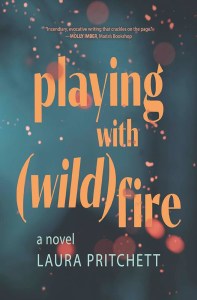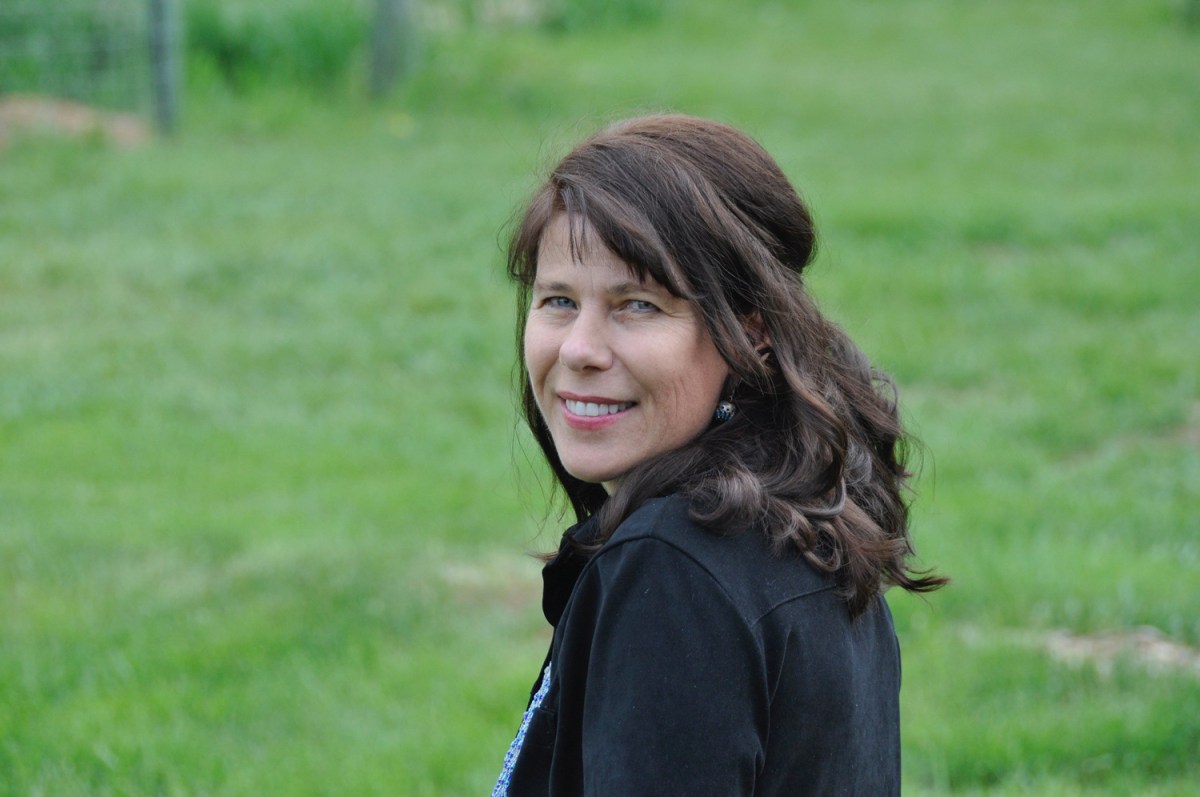Colorado’s Cameron Peak Fire scorched over 200,000 acres and raged uncontained for 112 days in 2020, becoming the largest fire in the state’s history. It was still smoldering when writer Laura Pritchett, who in northern Colorado near the fire’s evacuation zone, began writing her new novel, Playing with Wildfire. Wildfire was a natural topic for Pritchett, who has devoted her career to creating and nurturing literature of the West. She has published two nonfiction books and seven novels, including the forthcoming one, Three Keys (July 2024). With each book, Pritchett seeks to upend expectations about the literature of the West and to delve into fraught topics, including class differences, climate change and generational conflicts. Playing with Wildfire explores these issues through complicated, authentic characters and a playful structure that includes poems, lists, an astrology report, a grant application, a map, an obituary and a play. This creates a kaleidoscopic view of how the fire impacts each character’s understanding of the way climate change will upend their lives. We met up with Laura in January to discuss her latest book, which Torrey House Press released on Feb. 13, and to get her thoughts on the changing West. This interview has been edited for length and clarity.
High Country News: How did the Cameron Peak Fire inspire this book?
Laura Pritchett: Without a doubt, this book exists because of that fire. The sky was gray, the sun glowed red, ash littered our homes. We all had bloody noses and coughs and stinging eyes. My house happens to sit near one of the evacuation perimeters, so I could see the traffic coming off the mountain — trailers filled with horses and livestock and belongings, and we could all see the hard work of firefighters and emergency response teams heading up, helicopters and planes overhead, burned pine needles at my feet.
So, I started writing, right in the middle of it all. When I’m stressed, I write — it’s good therapy, for one thing. But more importantly, I wanted to bear witness to trauma, celebrate my community, write into my love. I wanted to explain the situation to others via fiction, which might engender empathy, awareness, action.
HCN: Playing with Wildfire is so structurally playful. Why did you decide to work in so many different literary forms to tell this story?

LP: Writing about climate chaos and my love of planet Earth — that’s my goal for the rest of my writing days. But climate is such an enormous and nebulous topic! For that reason, it’s hard to access the realities in standard narrative form. I liken it to trying to take a sip of water from a blasting firehose. But if we can break it up, come at it from angles, approach from startling perspectives, we can take some sips, you know? In that way, we can get glimpses into this humongous reality of what climate change is doing to our planet, our humanity, our nonhuman relatives. At least, that was my idea. I felt I absolutely needed a playful, unique way to engage with an incredibly heavy, bogged-down, essential topic.
HCN: How can nature writing help people engage with the weightiness of climate change in a constructive way?
LP: The conundrum of eco-grief is this: How do we mourn, and respond to, something that hasn’t happened, but instead is happening now, especially when the severity of what happens next is dependent on how we act right now? That’s weighty!
People don’t want to think about climate chaos — “change” is too soft a word — because it’s weighty. They don’t want to read many books on the topic either, because they are weighty.
That’s why we need new stories and new approaches to storytelling in the first place — and I must say, the field of nature writing is totally responding to that. I have so much admiration for what’s going on now — this is not the nature writing of times past, which was pretty privileged, pretty white and pretty focused on the celebratory. The field of nature writing now is diverse, spicy, inclusive, thematically fascinating, and is, most importantly, telling new stories.
HCN: You direct the MFA in Nature Writing at Western Colorado University. Does climate change and natural disaster factor into the nature writing of the up-and-coming writers you work with?
LP: (This program is) one of the few in the nation dedicated to responding ethically to our current climate and environmental realities with honesty and compassion. We define “nature writing” broadly — fiction, nonfiction, poetry, any work that is place-based. We are not talking about the Romantics or Thoreau, we are talking about the contemporary, complex, diverse nature writing out there, of which there is plenty. Many people who come into the program are focused on climate change and want to be advocates, sure. They want to find community, to express their loves or worries via written word, to be a part of the contemporary conversation.
HCN: What are your hopes for the future of the West in the face of climate change and natural disaster?
How can we live in an era of less, but realize we have as much as we need?
LP: Given our landscape and aridity, we obviously face unique challenges out West, and for this reason, one of my chapters is told from the point of view of someone writing a grant to an organization based in D.C., basically begging (and scolding) them to please take note of what is going on in the West. And yet. It’s not just the West, is it? We have hurricanes and flooding and storms across the planet, and obviously our future is completely dependent upon one another. So my hopes are not confined to the West. My hopes are for this one rare spinning ball. My hope is the same as most other people’s hope: That we get our act together. This will involve substantial, planned and hopefully peaceful change. I think each of us — myself included, of course — needs to ask tough questions: What can we do, so that we can die in peace, respecting ourselves? How can we live in an era of less, but realize we have as much as we need?
This change will include everything from national elections to the personal choices, and will include having incredibly difficult conversations that few want to really have — no one likes touchy topics! Carrying capacity. Our approach to death and dying. Access to education, birth control and societal and environmental justice. Honoring the rights of rivers and non-human life. What doesn’t get talked about doesn’t get fixed. So we need to start talking more loudly. Which is why I wrote this book. It’s one humble thread of a conversation.
HCN: And fiction can do that?
LP: Sure. I hope so. I’ve done my best to create fictions to tell the urgent truth of wildfire and climate chaos. My ardent hope is that more realistic and imaginative stories take on the subject of our burning planet. Fiction can do it as well as nonfiction — maybe even better.
Jenny Shank’s novel The Ringer won the High Plains Book Award, and her story collection Mixed Company won the Colorado Book Award. She teaches at the Mile High MFA at Regis University and the Lighthouse Writers Workshop in Denver.




